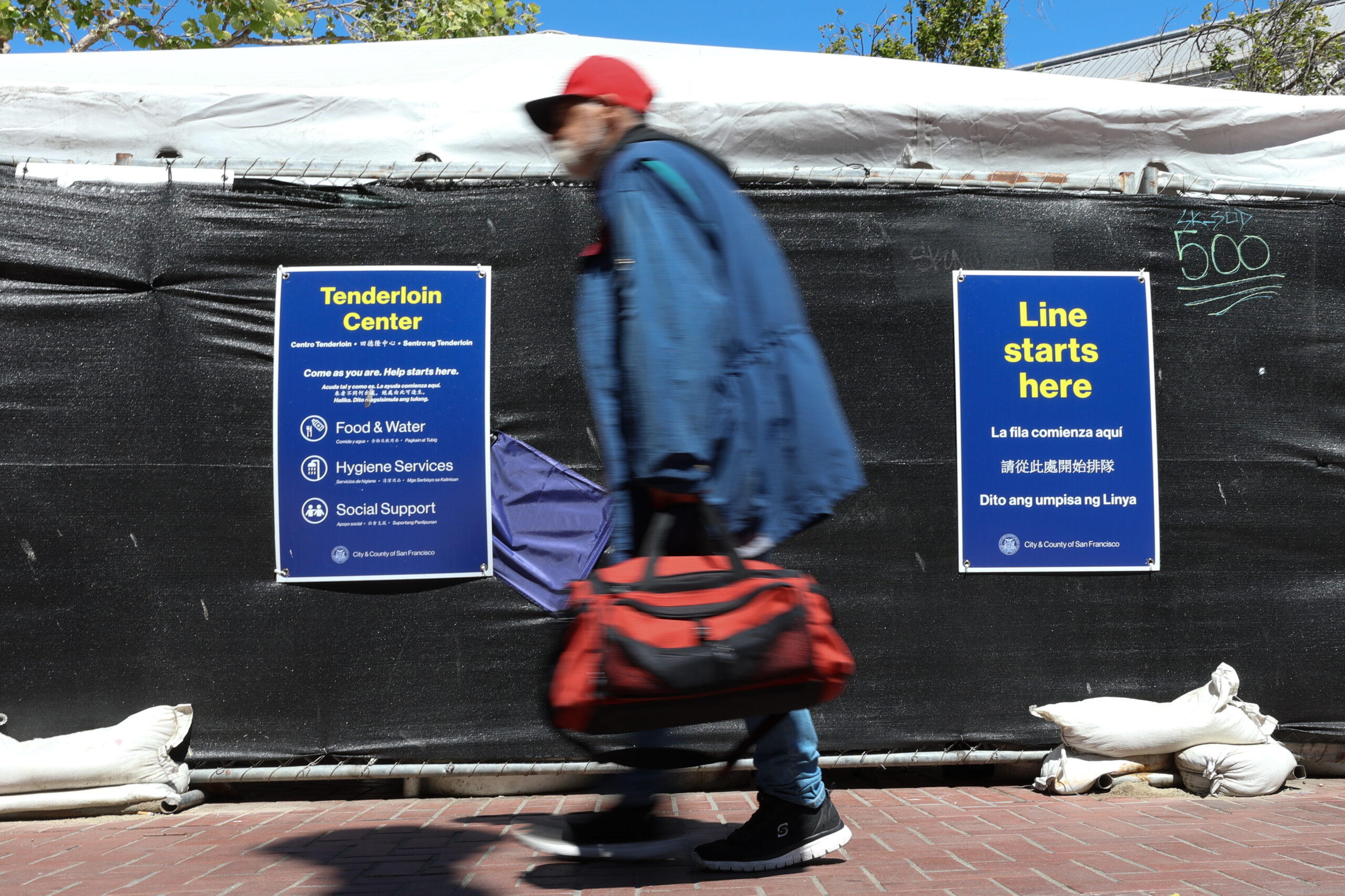San Francisco is five months into operations at its first “overdose prevention site,” as it was referred to in emails reviewed by The Standard.
Mayor London Breed introduced the Tenderloin Linkage Center, as it was formerly known, as part of her Tenderloin Emergency declaration on Dec. 17. Breed touted the center as a place for people suffering from substance abuse disorder and mental illness to be linked to services.
But emails show a disconnect between how the site was discussed among a small group of officials at the Department of Public Health and at HealthRIGHT 360, a lead contractor, and how it was discussed more broadly with other city agencies and members of the public.
Behind the scenes, public health officials made a concerted effort to draw the public’s attention away from the lack of linkages before ultimately changing the name of the site to dampen expectations that it would fulfill its stated purpose.
The Tenderloin Center is a de-facto safe consumption site.
Months after the facility’s Jan. 18 opening, city officials quietly dropped the word “linkage” from the title, according to the facility’s dashboard.
From the very start, the facility struggled to link people to drug treatment. Meanwhile, a group of top officials involved in creating the facility saw it primarily as a place where people could consume drugs in relative safety, according to documents reviewed by The Standard.
The same was true for many guests of the center. In interviews with The Standard, guests who had visited the site confirmed that they had witnessed or partaken in illegal drug use there. Some weren’t even aware that drug rehabilitation services were offered at the linkage center, seeing it primarily as a safer and more private place to use drugs.
Britt Miazgowicz, vice president of contracts for HealthRIGHT 360, referred to the facility as the “Tenderloin Overdose Prevention Site,” or TOPS for short in a Jan. 7 email to Andrea Tenner, the Department of Public Health’s head of emergency preparedness.
A scramble to pull the center together.
The idea for a “linkage center” first emerged as part of Mayor Breed’s Dec. 17 emergency declaration to crack down on drug overdoses and drug-related crimes in the Tenderloin district. As part of a “robust, aggressive plan” to address the crisis, Breed said that the city would open a center to connect those struggling with substance abuse and other problems to the services they need.
On Dec. 20, HealthRIGHT 360 staged a press conference denouncing Breed’s plan for more policing. Records show that within days, HealthRIGHT 360 was in discussions to staff the linkage center.
In the days and weeks following Breed’s declaration, employees of multiple city agencies, including the Department of Emergency Management, Department of Public Health and the Department of Homelessness and Supportive Housing, scrambled to pull together a plan, and tapped HealthRIGHT 360 and other nonprofits to help run the site.
“It came together with almost no notice,” said Gary McCoy, the vice president of policy and public affairs for HealthRIGHT 360.
Breed went back and forth on allowing drug use at the site.
Breed appeared to flip-flop on whether drug use was permitted at the linkage center, saying in December that the city would no longer “let someone use [drugs] in broad daylight.”
Weeks later, after the center opened, she appeared to walk back her earlier statement, asserting at a press conference that the city “cannot control who does or does not use drugs in any given location.” In February, Breed told Fox KTVU in a live interview that drug use is not “authorized” at the linkage center.
“I don’t think we would characterize the linkage center as the same thing as an overdose prevention site,” said Jen Kwart, a spokesperson for the city attorney’s office, in an interview last month.
The legal grounds are shaky for safe consumption sites.
The Tenderloin Center’s emergence as a de-facto safe consumption site puts the city in a tricky position. Federal law prevents such facilities under the Controlled Substances Act, and a law that would legalize them in California is making its way through the legislature.
The justice department, under the Trump administration, sued a nonprofit called Safehouse in February 2019 over plans for a safe consumption site. The justice department is in settlement negotiations with that nonprofit in a case that is expected to resolve in the coming weeks.
“If San Francisco decides to move ahead of the state and open up a safe consumption site before SB 57 passes, that’s a decision for San Francisco,” Wiener said.
There is hope that the site could soon be legal.
The justice department is weighing a possible legal path forward for supervised consumption sites, and has engaged with the mayor’s office this year on the question of what the rules for those sites ought to be.
It’s unknown yet what those terms could look like, but harm reduction advocates are watching for a decision in the coming weeks that could allow safe consumption sites to operate legally under some conditions.
